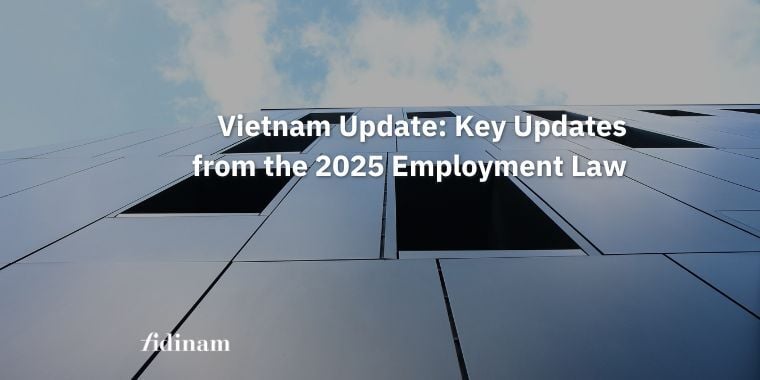
On June 16, 2025, during its 9th session, the 15th National Assembly officially passed the Employment Law No. 74/2025/QH15. Comprising 8 chapters and 55 articles, the new law will take effect on January 1, 2026.
Compared to the 2013 Employment Law, the new legislation introduces several notable amendments and additions, particularly in the areas of expanding unemployment insurance coverage, revising eligibility conditions for benefits, reinforcing employer responsibilities, and increasing flexibility for workers.
One of the most significant changes under the 2025 Employment Law is the broadening of the scope of workers required to participate in unemployment insurance. In addition to long-term contract employees, the following groups are now subject to mandatory participation:
The new law also places special emphasis on the fact that unemployment insurance will be mandatory, even when a company and a worker sign an agreement under a different name, as long as the content reflects a paid employment relationship with supervision and management by one party.
This provision aligns with the Labor Code, which adopts a broader definition of "employment contracts" — not limited to documents explicitly labeled as such, but also covering other agreements that involve labor in essence. Additionally, this regulation is consistent with the amended Social Insurance Law that came into effect on July 1, 2025.
These adjustments aim to increase unemployment insurance coverage, reducing the risk of informal workers or management-level employees being excluded from the national social security system.
The new law also clarifies eligibility requirements based on contract type, promoting fairness and transparency in its application. Specifically:
This differentiation helps eliminate confusion surrounding short-term contracts—an issue that has complicated implementation under the 2013 law.
A major enhancement in the 2025 Employment Law is the direct financial liability imposed on employers who fail to fulfill their unemployment insurance obligations.
According to the new provisions, if an employer does not contribute properly to the unemployment insurance fund, they must personally compensate the worker for the full value of benefits they would have received. These benefits include: unemployment allowances, vocational training support, job placement services, and health insurance contributions during the unemployment period.
This provision is expected to improve compliance, deter evasion, and better protect the lawful rights of workers.
The new Employment Law introduces incentives to encourage employers to create job opportunities for people with disabilities. Specifically, it allows for a reduction in the unemployment insurance contributions that employers are obligated to pay when they newly hire and employ workers with disabilities. This reduction may be applied for a period of up to 12 months from the hiring date.
Unlike the previous law, the 2025 legislation permits workers to transfer their unemployment benefit location if they move to a new place of residence. This does not interrupt their benefit payments, provided they follow the required procedures set by the relevant insurance authority.
Under the previous regulations, employees had to receive at least one month of benefits at their original registered location before transferring. The new law removes this restriction, allowing for greater flexibility when relocating or job hunting in a different locality.
With these comprehensive updates, the 2025 Employment Law represents a strategic advancement toward a more inclusive, equitable, and resilient labor market in Vietnam.
Workers are encouraged to stay informed to safeguard their rights, while employers must take greater responsibility for compliance—particularly in fulfilling social insurance contributions.
Fidinam provides advisory services to help design and adjust HR policies in compliance with current laws, including the latest changes under the 2025 Employment Law. For any support needs, please feel free to contact us for timely and detailed consultation.
All content © . All Rights Reserved.